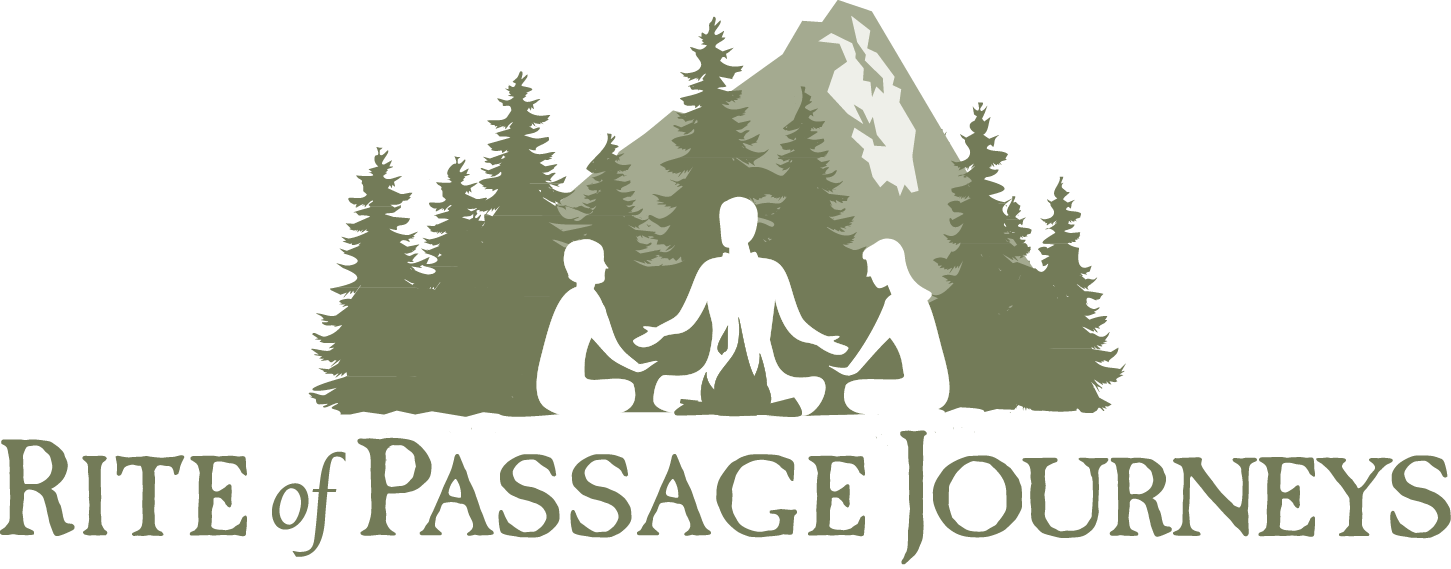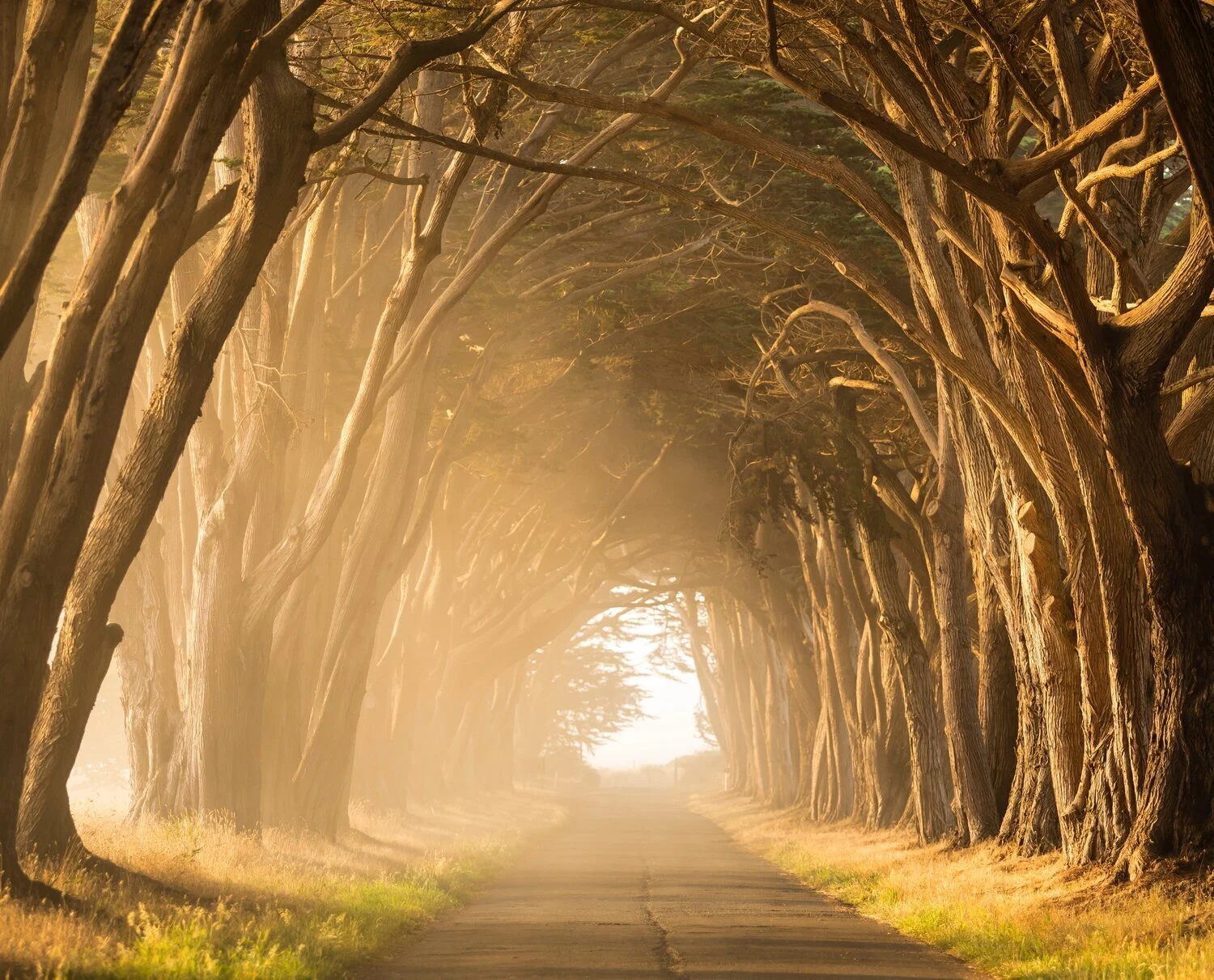Seeking Wholeness in A Fragmented World
By The Reverend Jennifer DeBusk Alviar
There are many stories about gardens. Some are of paradise. Others are of despair. I’d like to share with you a story about one particular garden that lies somewhere between the two. Because, life is like that. We experience our joys and sorrows. We hope to make a difference in the world. We’d like to think that we have not lived our lives in vain. And when we make mistakes — because we do — we are received with the gift of forgiveness. Forgiveness, in the abstract, is hard to relate to. So let me ground this concept in the context of a story to help flesh out and embody what it means to find soul-nourishment and renewal in a suffering world.
I recently participated in a storytelling workshop series with Rite of Passage Journeys. The facilitator, Ben Dennis, invited us to tell what he called a generative story. Storytelling as an agent of social awareness and transformation. Here were some of his guidelines:
1. Choose a story that speaks to your place in the world. Draw from experience that is personal, has meaning within your community, and where you have skin in the game. Please, let’s do our best to avoid rants and grand political issues—again, be personal.
2. Focus on a trajectory; the journey of revelation, lessons learned, resolve, etc.
3. If possible, let your journey be a Gift that you share. All of us have stories that are wonderful—even the tragic ones are gifts. Be poetic, creative, and loving!
I thought about many stories I might tell. But there was one in particular that kept coming back to me. I kept pushing it away. "No, not that one,” I said. But it was one of those stories that insisted to be told. I became curious about its urgings. Why this story? Why now? I realized that it was a story about food, fellowship and forgiveness. A timely message for all seasons. In the telling of this story, it may evoke some emotion on my part. But I honor, respect and trust the gift of forgiveness and love in both our glory and our shortcomings.
So, here is my story.
It is dinner time. I am in the kitchen with my daughter, Madeline, who at that time is 9 years old. The sights and smells of the kitchen create a warm, cozy feeling between us. I am browning some meat on the skillet as we chat happily together. Suddenly, I hear a pop. Then a scream. The hot oil from the skillet accidentally spills onto my daughter’s body causing a burn on her belly.
I know we all make mistakes. Accidents happen. But self-forgiveness is hard to come by. In time, the physical wound heals. But the emotional scars remain. My daughter’s natural spirit of joy is replaced by fear and anxiety. This breaks my heart. I reached out to Madeline’s pediatrician, Dr. Lenna Liu. “Please help me,” I plead. “This cooking accident seems to have paralyzed Madeline with fear. I need some way to free her from this anxiety. How can we move from the paralysis of fear toward a greater sense of freedom, hope and healing?”
Dr. Liu is compassionate and resourceful. She introduces me to the nutritionist, Rebecca Finkel. This one, pivotal introduction forever changes our lives. Rebecca looks into my anguished face and says, “Your timing is perfect. Seattle Children’s Clinic at Odessa Brown has just developed a brand new partnership with a nonprofit called Green Plate Special. You are welcome to join a 6-week parent/child cooking class. This class takes place in a wonderful, organic garden on an urban farm. Kids gain a holistic approach to cooking, nutrition, gardening and meal sharing catered to a diverse community. I think you’ll really enjoy this innovative farm-to-table learning environment. Best of all, it starts next week!” I am filled with immense gratitude.
On the first day of class, Madeline and I open the garden gate and walk in. This garden bursts with joy, overflowing with brightly colored flowers and fresh fruits and vegetables. I take in a deep, hopeful breath. My body relaxes. Madeline runs over to the chicken coop. I don’t know what it is about chickens, but they seem to put everyone at ease. As Madeline feeds the chickens, other kids join her creating a lively spirit of playfulness, curiosity and friendship.
In the kitchen, spices and fresh herbs tantalize our senses. We learn about culturally relevant foods from around the world. First, we cook a South Indian vegetable stew called sambar. Next, we prepare and savor an East African vegetable curry dish. Then, we use our hands to shape Middle Eastern kofta meatballs grilled on skewers accompanied by fresh garden vegetables and delicious tzatziki sauce. And finally, a crowd pleasing favorite — homemade pizza with Italian tomato sauce, herbs and mozzarella cheese baked in a wood burning oven. Are you hungry yet? At the end of Madeline’s 6-weeks with Green Plate Special, she has indeed regained her joyful spirit, along with valuable cooking skills and a deep appreciation for food and fellowship.
This alchemy between food and fellowship leads me to reflect on a larger question. Each of us, at one point or another, is wounded by life. Some of our wounds are physical. Other wounds are emotional. Oftentimes, our pain is a mix of both. How can we move from the paralysis of fear toward a greater sense of freedom, hope and healing?
In my experience, the most profound truth lies in the humble prayer recited before each meal:
This food is a gift of the whole universe.
The Earth, the sky, and much hard work.
May our actions be a reflection of this gift.
In the most tender moments of life — vulnerable, raw and in pain — the earth gives herself to us. A seed was planted on fertile soil the day that I reached out for help and was graciously cared for. Madeline’s healing — and mine as well — began with four simple ingredients: a clinic, a nonprofit, a garden and some chickens. For me, it all comes down to this. On days when life feels scarce and I am short on hope, I shut my eyes and breath. I imagine myself back in that beautiful, soulful garden. Then I pray. I pray that my actions may indeed be a reflection of this gift richly given and humbly received. Here, in this garden, I find freedom, hope and healing.
This is where my story concludes. Yet in the act of telling it aloud in community with others, a new story emerged for me. What happened next evoked a curious element of surprise. This moment caught me completely off-guard. As I reached the end of my story, I felt emotion catch in my throat. Tears welled up in my eyes. I began to cry. Wait. This isn’t supposed to be happening. This is the part in my story where I bring clarity, resolution, closure and a call to action. This is the part in my story where I rise up, not fall apart. Is this a crisis of faith? Do I not affirm the inherent worth and dignity of all human beings as core to my belief system? Do I not believe in the grace of forgiveness? Is there no balm in Gilead or elsewhere for healing human pain and suffering?
When Ben recommended that we practice our stories, I took it quite literally. Each day for two weeks straight, I worked on revising the wording of my story while taking daily nature walks through the arboretum. I figured that practicing my story through speech and grounding it through movement would lead to greater integration. On one level, yes. But healing is another matter.
In talking to Ben afterwards, I came away with a truer, more honest account of the human condition. Sometimes we become strangers to our fear and grief because we can’t bear our own pain. It takes time to heal. The act of storytelling itself is part of that healing process. But we can’t force its pace and timing. In the words of Quaker singer and songwriter, Carrie Newcomer, we can only move as fast as the speed of soul.
I can imagine what it must feel like for each of us to come across a well-rehearsed narrative. Suddenly, we feel ourselves caught by emotion and surprise at the wrong part in our life story. “No!” we protest. "This is not supposed to be the part in the story where — fill in the blank — our marriage ends, we lose our jobs, we are confronted by racial injustice that challenges the images we hold of ourselves." I can understand the human impulse for a revisionist story of our personal and collective histories. But if we can be in community with others to bear our own pain knowing that we are not alone, then further healing can occur with more grace and soul.
This storytelling experience offered me a priceless gift. I discovered that what we are really practicing is not a polished version of our spoken words, but rather practicing our humanity in community with others. I invite you to name or feel your way into your own lived experiences where your humanity has been expanded through community connections, your soul forgiven for mistakes made, and your spirit uplifted, renewed and restored. Reflect on a moment where you have encountered a greater sense of healing and wholeness in a fragmented world. Breath deeply into that moment. And may you be blessed.
Amen, Shalom, Salaam, Namaste and Ashe,
The Reverend Jennifer DeBusk Alviar
*****
Special note of thanks to:
Ben Dennis, PhD, Storytelling as an agent of social change and transformation.
www.riteofpassagejourneys.org/storytelling
Green Plate Special, a local urban farm dedicated to empowering youth and strengthening communities by teaching teens valuable gardening and cooking skills.
The Reverend Jennifer DeBusk Alviar is an interfaith minister ordained in the Unitarian Universalist tradition. She received her Master of Divinity degree at Starr King School for the Ministry in Berkeley, California. Her specialty is in leadership and social change. She collaborates with schools, churches and nonprofits designed to empower youth to become strong leaders and caring citizens through community service projects. As a faith leader and community bridge-builder, her ministry also includes public speaking, writing, theology, interfaith dialogue, retreat facilitation, social justice and youth leadership. Rev. Alviar is a member at East Shore Unitarian Church located on the traditional territory of the indigenous Duwamish and Coast Salish peoples currently known as Bellevue, Washington.












